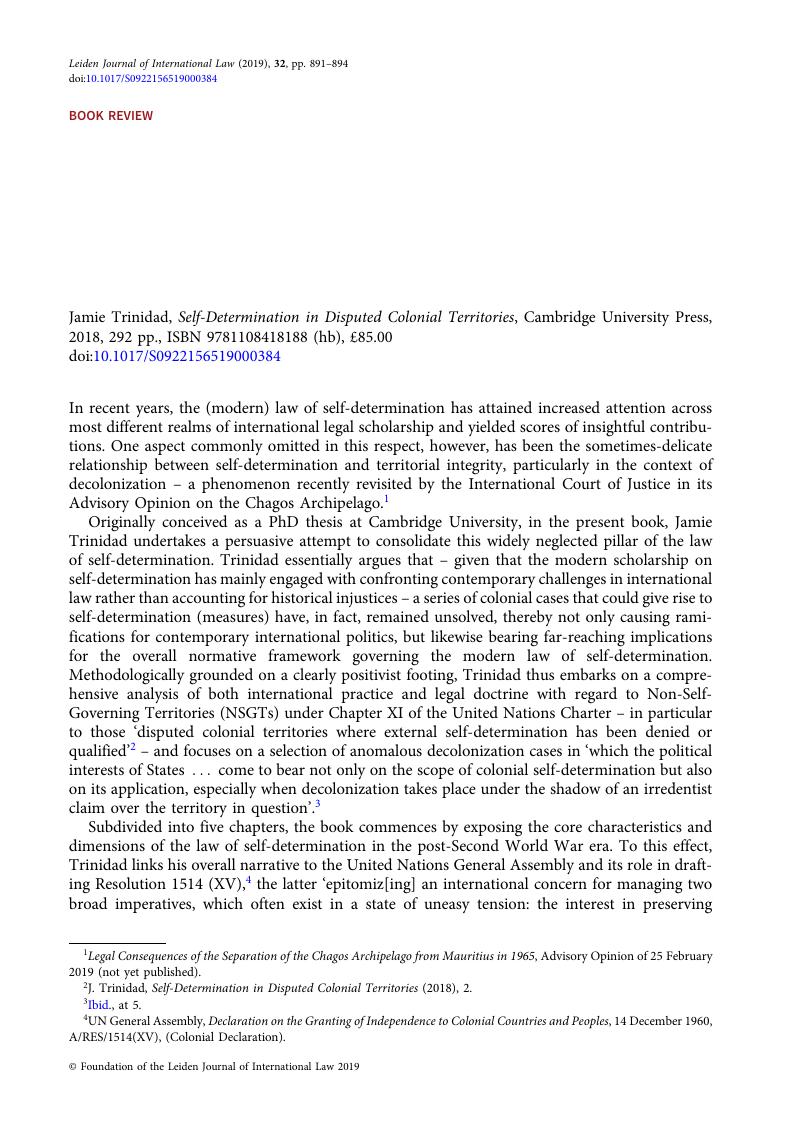No CrossRef data available.
Published online by Cambridge University Press: 04 September 2019

Lecturer in International Law, Department of Law, University of Mannheim; Associate Fellow, Peace Research Institute Frankfurt (PRIF) [[email protected]].
1 Legal Consequences of the Separation of the Chagos Archipelago from Mauritius in 1965, Advisory Opinion of 25 February 2019 (not yet published).
2 Trinidad, J., Self-Determination in Disputed Colonial Territories (2018), 2.CrossRefGoogle Scholar
3 Ibid., at 5.
4 UN General Assembly, Declaration on the Granting of Independence to Colonial Countries and Peoples, 14 December 1960, A/RES/1514(XV), (Colonial Declaration).
5 J. Trinidad, supra note 2, at 10.
6 Ibid., at 11.
7 Ibid., at 22.
8 Western Sahara, Advisory Opinion of 16 October 1975, [1975] ICJ Rep. 12.
9 J. Trinidad, supra note 2, at 23.
10 Ibid., at 50.
11 Supra note 8, para. 162.
12 Legal Consequences for States of the Continued Presence of South Africa in Namibia (South West Africa) notwithstanding Security Council Resolution 276 (1970), Advisory Opinion of 21 June 1971, [1971] ICJ Rep. 16.
13 Accordingly, ‘[t]he validity of the principle of self-determination, defined as the need to pay regard to the freely expressed will of peoples, is not affected by the fact that in certain cases the General Assembly has dispensed with the requirement of consulting the inhabitants of a given territory. Those instances were based either on the consideration that a certain population did not constitute a “people” entitled to self-determination or on the conviction that a consultation was totally unnecessary, in view of special circumstances’, Western Sahara, supra note 8, para. 59.
14 J. Trinidad, supra note 2, at 155.
15 Ibid., at 162.
16 Ibid., at 237.
17 Ibid., at 239.